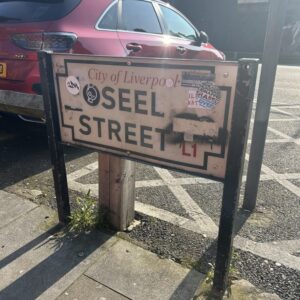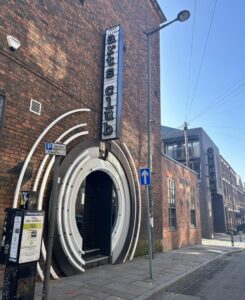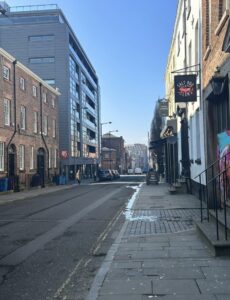
As the cost-of-living crisis deepens, music venues across the UK are facing increasing financial pressure with many struggling to stay open.
Following the impact of COVID 19, these live music spaces are juggling rising operational costs, fewer gig goers and shrinking profits. According to the Live Music Trust around 125 venues have been forced to close or have stopped hosting live performances.
In Merseyside, a region renowned for its music culture, venues are also feeling the squeeze. Nathaniel Pennington, Events manager and club programmer at Arts Club Liverpool, Seel Street, explained the tough reality.
He said: “There’s noticeable decline in people going out, ticket sales are lower, and customers are spending less once they’re inside the venues.”
He points to changes in nightlife, with clubs now closing earlier at 3am instead of 4am, as well as a big rise in last-minute ticket purchases: “Before 2020, only 10-25% of tickets were sold on the day of an event.
“Now, more than half are bought at the last minute which makes planning very difficult.”

As households are cutting back on discretionary spending, venues are finding creative ways to attract custom while balancing their own rising costs.
Student club night creators in Liverpool ‘Shindie Disco’ emphasised the need to keep events affordable, particularly for students in the city.
They said: “We know that rent, food and energy bills are more expensive than ever so we try to keep the prices as low as we can.”
They emphasised the importance of what Eurovision did for the city, however that was only a temporary boost during the difficult time for the industry: “Eurovision brought a great buzz to the city but it’s not something we usually see as a student-focused night.”
The Eurovision Song Contest hosted in 2023, brought over 250,000 visitors to the city and injected over £54.8 million into the local economy, according to the Liverpool City council.
Despite the short-term financial benefits, Nathaniel is cautious about the long-term impact of the cost-of-living crisis. He said: “It doesn’t solve the ongoing challenges we face in the industry.”
Clubs are now having to compete harder for customers, with many dropping ticket prices or offering more competitive drink deals. Yet the strain of rising artist fees and other costs are making it difficult for smaller grassroot venues to stay afloat.

Industry leaders are calling for government intervention to help keep music alive.
Nathaniel suggests that a VAT reduction on drinks and ticket sales could make a significant difference.
He said: “COVID showed us that people could have a good time without hospitality and now, people are slower to return. A VAT reduction on tickets and drinks could be a lifeline for these venues fighting to stay open.”
Shindie Disco also agreed that VAT cuts would provide much needed relief, especially for smaller venues on thin margins. They explained: “Every £5 ticket we sell must account for VAT, and that’s before we even factor the rising cost of everything else. It really adds up.”
As the cost-of-living crisis continues to take its toll, the future of Merseyside’s beloved music venues remains uncertain, with many hoping for government support to ease the burden before more doors close for good.
Featured image (c) Grace Fisher-Turvey










